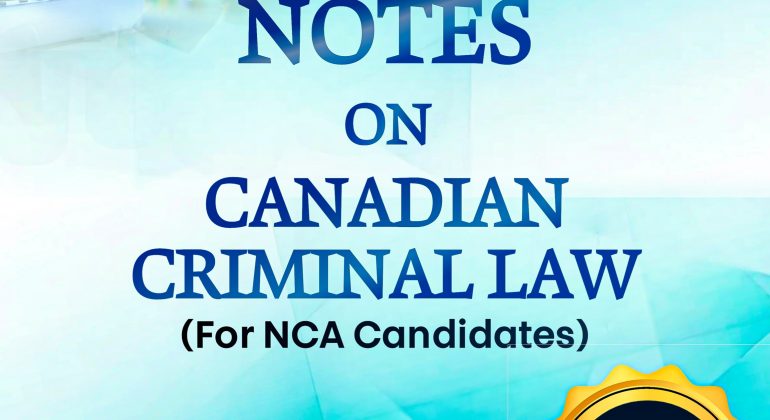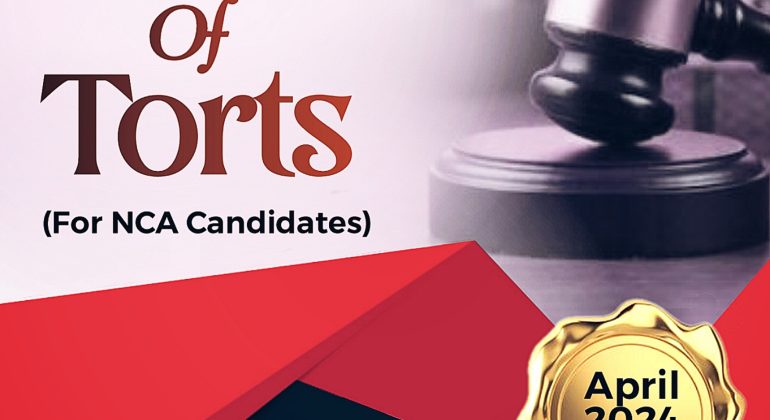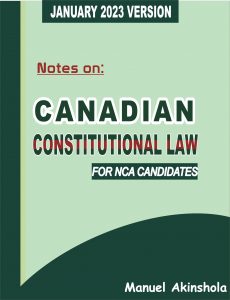I’ve received several inquiries as to the effect of the recent decision of the Supreme Court of Canada (SCC) in R. v. Brown on the defence of extreme intoxication akin to automatism. Many sought to know if the decision meant that the defence of extreme intoxication remains valid or not in view of s. 33.1 of the Criminal Code, and to what extent intoxication would be recognised as a defence to a crime of general intent. Others have sought my opinion on the validity of the amendment made to section 33.1 by Parliament immediately after the decision in Brown.
Let me seek to provide a little explanation here, and in doing so, I wish to employ the simplest of languages to enable you better understand. To aid you in a better appreciation of the principles involved, I will start by providing some historical background to the defence of extreme intoxication. But before then, please take note of the difference between offences of general intent and those of specific intent, as we shall continuously make use of this term in this piece. In R. v. Daley, (2007) 3 S.C.R. 523, the SCC encapsulated the distinction in these words: “Specific intent offences require the mind to focus on an objective further to the immediate one at hand, while general intent offences require only a conscious doing of the prohibited act”. See also R. v. Bernand (1988) 2 S.C.R. 833. Therefore, a crime of general intent is that where the offender does not need to form the specific intent to commit the crime. The mens rea can be implied from the commission of the act itself. An example of general intent offence is assault. On the other hand, crimes of specific intent are those which require that the offender must have formed the specific mens rea to commit the act, e.g., murder. One of the legal effects of this distinction is that where the court did not find the specific intent to convict for, e.g., murder, the accused can be found guilty of e.g., manslaughter, a general intent offence.
Traditionally, under common law, the rule is that intoxication is not recognised as a defence to a criminal charge. This rule persisted also in Canada and was reiterated by the SCC in R. v. Leary (1978) 1 S.C.R. 29 where the Court held that intoxication akin to insanity could not negate mens rea for “general intent” crimes such as sexual assault. So, notwithstanding that an accused was found to be sufficiently intoxicated at the time of the offence, so much that he was unable to form the “minimal mental element” required for a general intent offence, he may still be held liable as the act of inducing intoxication can be substituted for the requirement of mens rea. This later became known as the “Leary rule”, and its effect was to make the mental element of inducing oneself to intoxication a substitute for the mental element required of the crime committed while in that state. Therefore, intoxication was not available as a defence to a criminal offence of general intent. This was the rule up until 1994.
In 1994, the constitutionality of the Leary Rule was challenged in R. v. Daviault. In that case, D was charged with sexually molesting a semi-paralysed woman in a wheelchair. His defence was that he had no recollection of the events because he had taken a substantial amount of alcohol. He challenged the Leary rule on the ground that he could not have formed the mens rea required for the offence of sexual assault as a result of his state at the material time. He argued that he had blacked out and was in a state akin to automatism provoked by the alcohol. An expert witness also testified that having taken the amount of alcohol D was said to have taken on the day of the incident, there was little chance that he could have functioned normally or was even aware of his actions.
Based on this evidence, the trial judge acquitted D, holding that he was unable to form a general intent to commit the crime of sexual assault. This decision was upturned by the Quebec Court of Appeal which held that intoxication to the point of automatism cannot negate the mens rea requirement for a general intent offence. But at the SCC, one of the issues was whether “a state of drunkenness which is so extreme that an accused is in a condition that closely resembles automatism or a disease of the mind as defined in s. 16 of the Criminal Code constitute a basis for defending a crime which requires not a specific but only a general intent?”. Ordering a new trial, the Court held that denying an accused the defence of intoxication akin to automatism for a general intent offence violated ss. 7 and 11(d) of the Charter. The SCC thus recognised that while, as a general rule, intoxication is not a defence to general intent offences, an exception can be recognised where the intoxication is so extreme that it is akin to automatism or insanity. (Please note, however, that the Court did not overturn the Leary rule with regards to typical forms of intoxication; only extreme intoxication was excused).
In reaction to this judgement, Parliament in 1995 effected an amendment to the Criminal Code by inserting s. 33.1 to the effect that the defence of extreme intoxication is not available when the intoxication is self-induced and where the accused has departed markedly from the standard of care generally recognised in Canadian society. Subsection (2) provided that a person departs markedly from this standard of care and is criminally at fault if, while in the state of self-induced intoxication that renders him unaware or incapable of controlling his conduct, voluntarily or involuntarily interferes or threatens to interfere with the bodily integrity of another person. So, when an accused was charged with an offence involving violation of bodily integrity of another, he was not allowed to raise the defence of extreme intoxication akin to automatism. This was the operating statutory provision from 1995 until it was again constitutionally challenged in 2022.
In R. v. Brown 2022 SCC 18, the accused was charged with aggravated assault of a woman. His defence was that he had consumed a substantial amount of alcohol and “Magic Mushrooms”, an illicit drug that contain psilocybin and provokes hallucinations and deliriums when ingested, and he thus lost touch with reality. Brown contended that he lacked the required mens rea for the alleged crime because he was in a state of automatism at the point in time. He called expert evidence who also confirmed that ingesting the magic mushrooms in combination with alcohol could have provoked the delirium suffered by Brown.
In response to this defence, the Crown invoked s. 33.1 of the Criminal Code that Brown could not use self-induced intoxication as an excuse to say he lacked the general intent or the voluntariness required to commit the offence. Brown then mounted a challenge against the constitutionality of s. 33.1, contending that the provision violated his right to personal liberty, presumption of innocence and right to full answer and defence contained in ss. 7 and 11(d) of the Charter respectively. The trial court agreed with him and struck down s. 33.1 of the Criminal Code as unconstitutional, acquitting Brown of the charges. The Alberta Court of Appeal reversed this decision and set aside Brown’s acquittal.
Upon a further appeal by Brown to the SCC, the Crown argued that s. 33.1 should be read purposefully to mean that the act of voluntarily intoxicating oneself to an extreme level is a marked departure from the standards of reasonable care generally recognised in Canadian society and that the provision should be declared valid. But the Supreme Court in a unanimous judgment delivered in May 2022 agreed with the trial judge that s. 33.1 was unconstitutional for the following reasons:
- The principle of fundamental justice under s. 7 of the Charter is well established that criminal offences require a minimum fault requirement of at least negligence. However, in s. 33.1, Parliament merely substituted the intent to get intoxicated with the mens rea for the general intent offences against bodily integrity. This is a violation of s. 7 of the Charter which requires that all criminal offences must have a minimum mens rea requirement of at least negligence.
- 33.1 also offends s. 11(d) of the Charter which guarantees the presumption of innocence and which requires the Crown to establish all essential elements of an offence. On the contrary, s. 33.1 declares that proof of the intention to consume the intoxicant could be substituted for the intention to commit the predicate offence. Hence, the implication of the provision was that proof that the accused intended to become intoxicated satisfied the proof of one of the essential elements of an offence against the bodily integrity of another person. The Court noted that this is too broad because the intention to become intoxicated to any degree under the provision suffices. It does not matter that the person taking the intoxicant did not foresee their loss of awareness or control. The provision does not also take into account the licit or illicit nature of the intoxicant or its known properties in that it captures those who recklessly invite their loss of control, as well as those who did so due to unexpected involuntariness, e.g., as a result of unexpected reaction to a prescribed pain medication.
- The above notwithstanding, an accused presenting the defence of extreme intoxication akin to automatism is under an evidentiary burden to satisfy the trial judge that the intoxication was so extreme that it is akin to automatism. The defence is only permitted in rare circumstances, and as noted by the Court,
.… it is notable that extreme intoxication akin to automatism is an exigent defence requiring the accused to show that their consciousness was so impaired as to deprive them of all willed control over their actions. This is not the same as simply waking up with no memory of committing a crime. A failure to remember does not prove that an individual was acting involuntarily. Nor is it the same as suffering a psychotic episode where physical voluntariness remains intact. (At par. 50)
The evidentiary burden includes the calling of an expert witness (psychiatric, pharmacologist, toxicologist, etc.) who must confirm that the nature and properties of the substance can and did indeed provoke the loss of control in this accused person.
- However, the declaration of unconstitutionality did not affect the common law rule that intoxication short of automatism is not a defence to violent crimes of general intent such as assault or sexual assault. According to Kasirer J. who delivered the unanimous judgment, “I specifically leave intact the common law rule that drunkenness, absent clear scientific evidence of automatism, is not a defence to general intent crimes, including crimes of violence such as sexual assault.”
- The Court recognized the pressing and substantial social purpose behind Parliament’s desire to protect victims of extreme intoxicated violence, particularly women and children who are more vulnerable to intoxicated sexual and domestic violence, and that it is not impermissible for Parliament to enact legislation to hold extremely intoxicated person accountable for violent crimes. However, there are other constitutional and legitimate means to combat this.
In reaction to this new judgment, Parliament again amended the Criminal Code in June 2022 to accommodate SCC’s judicial reasoning. The new s. 33.1 in subsection (1) now includes the fault element by requiring that all the elements of the offence must be present, and that before they were in a state of extreme intoxication, the accused departed markedly from the standard of care expected of a reasonable person in the circumstances with respect to the consumption of intoxicating substances. The new provision has now removed involuntariness in the conduct of the accused, and perhaps, has given effect to the Crown’s interpretation of the erstwhile s. 33.1 that extreme consumption of intoxicating substances is of itself a marked departure from the standard of care expected of a reasonable person. S. 33.1(2) also gives the court the role of determining whether the person departed markedly from the standard of care, listing the criteria to be considered in making this determination. Whether this provision will stand the test of time is also a question of time.
So, as NCA candidate writing the Criminal Law exam, you need to carefully understand the facts of your exam question. You are advised to confirm that the facts relate to extreme intoxication akin to automatism, because as the SCC held in Brown above, the common law rule still stands that mere intoxication is not a defence to crimes of general intent.
Secondly, check the facts of your exam question to be sure that the accused person has complied with the evidentiary burden of satisfying the judge as to the nature and quantity of intoxicating substance taken to enable the judge determine if it is sufficient to provoke an extreme state akin to automatism. So also, the defence must call confirming scientific evidence to support the claim that the substance has the effect, and did provoke loss of control in the particular accused. A general assumption or theory will not suffice.
Thirdly, it is true that the SCC invalidated the erstwhile s. 33.1 of the Criminal Code. However, the amended s. 33.1 remains valid and in force, until otherwise struck. So, while answering your exam question, please relate it to the provisions of the new s. 33.1, not the old one.
All the best.
Manuel Akinshola
www.intraci.com
28/10/2022











